- Home
- Quizzes
- My Quiz Activity
- Newsletters
- Sports Betting
- MY FAVORITES
- Add Sports/Teams
- SPORTS
-
NFL
- NFL Home
- Arizona Cardinals
- Atlanta Falcons
- Baltimore Ravens
- Buffalo Bills
- Carolina Panthers
- Chicago Bears
- Cincinnati Bengals
- Cleveland Browns
- Dallas Cowboys
- Denver Broncos
- Detroit Lions
- Green Bay Packers
- Houston Texans
- Indianapolis Colts
- Jacksonville Jaguars
- Kansas City Chiefs
- Las Vegas Raiders
- Los Angeles Chargers
- Los Angeles Rams
- Miami Dolphins
- Minnesota Vikings
- New England Patriots
- New Orleans Saints
- New York Jets
- New York Giants
- Philadelphia Eagles
- Pittsburgh Steelers
- San Francisco 49ers
- Seattle Seahawks
- Tampa Bay Buccaneers
- Tennessee Titans
- Washington Commanders
-
MLB
- MLB Home
- Arizona Diamondbacks
- Atlanta Braves
- Baltimore Orioles
- Boston Red Sox
- Chicago White Sox
- Chicago Cubs
- Cincinnati Reds
- Cleveland Guardians
- Colorado Rockies
- Detroit Tigers
- Houston Astros
- Kansas City Royals
- Los Angeles Angels
- Los Angeles Dodgers
- Miami Marlins
- Milwaukee Brewers
- Minnesota Twins
- New York Yankees
- New York Mets
- Oakland Athletics
- Philadelphia Phillies
- Pittsburgh Pirates
- San Diego Padres
- San Francisco Giants
- Seattle Mariners
- St. Louis Cardinals
- Tampa Bay Rays
- Texas Rangers
- Toronto Blue Jays
- Washington Nationals
-
NBA
- NBA Home
- Atlanta Hawks
- Boston Celtics
- Brooklyn Nets
- Charlotte Hornets
- Chicago Bulls
- Cleveland Cavaliers
- Dallas Mavericks
- Denver Nuggets
- Detroit Pistons
- Golden State Warriors
- Houston Rockets
- Indiana Pacers
- Los Angeles Clippers
- Los Angeles Lakers
- Memphis Grizzlies
- Miami Heat
- Milwaukee Bucks
- Minnesota Timberwolves
- New Orleans Pelicans
- New York Knicks
- Oklahoma City Thunder
- Orlando Magic
- Philadelphia 76ers
- Phoenix Suns
- Portland Trail Blazers
- Sacramento Kings
- San Antonio Spurs
- Toronto Raptors
- Utah Jazz
- Washington Wizards
-
NHL
- NHL Home
- Anaheim Ducks
- Arizona Coyotes
- Boston Bruins
- Buffalo Sabres
- Calgary Flames
- Carolina Hurricanes
- Chicago Blackhawks
- Colorado Avalanche
- Columbus Blue Jackets
- Dallas Stars
- Detroit Red Wings
- Edmonton Oilers
- Florida Panthers
- Los Angeles Kings
- Minnesota Wild
- Montreal Canadiens
- Nashville Predators
- New Jersey Devils
- New York Islanders
- New York Rangers
- Ottawa Senators
- Philadelphia Flyers
- Pittsburgh Penguins
- San Jose Sharks
- Seattle Kraken
- St. Louis Blues
- Tampa Bay Lightning
- Toronto Maple Leafs
- Vancouver Canucks
- Vegas Golden Knights
- Washington Capitals
- Winnipeg Jets
- NCAAF
- NCAAM
- Boxing
- Entertainment
- Lifestyle
- Golf
- MMA
- Soccer
- Tennis
- Wrestling
- More Sports
- RESOURCES
- My Account
- YB on Facebook
- YB on Twitter
- YB on Flipboard
- Contact Us
- Privacy Policy
- Terms of Service
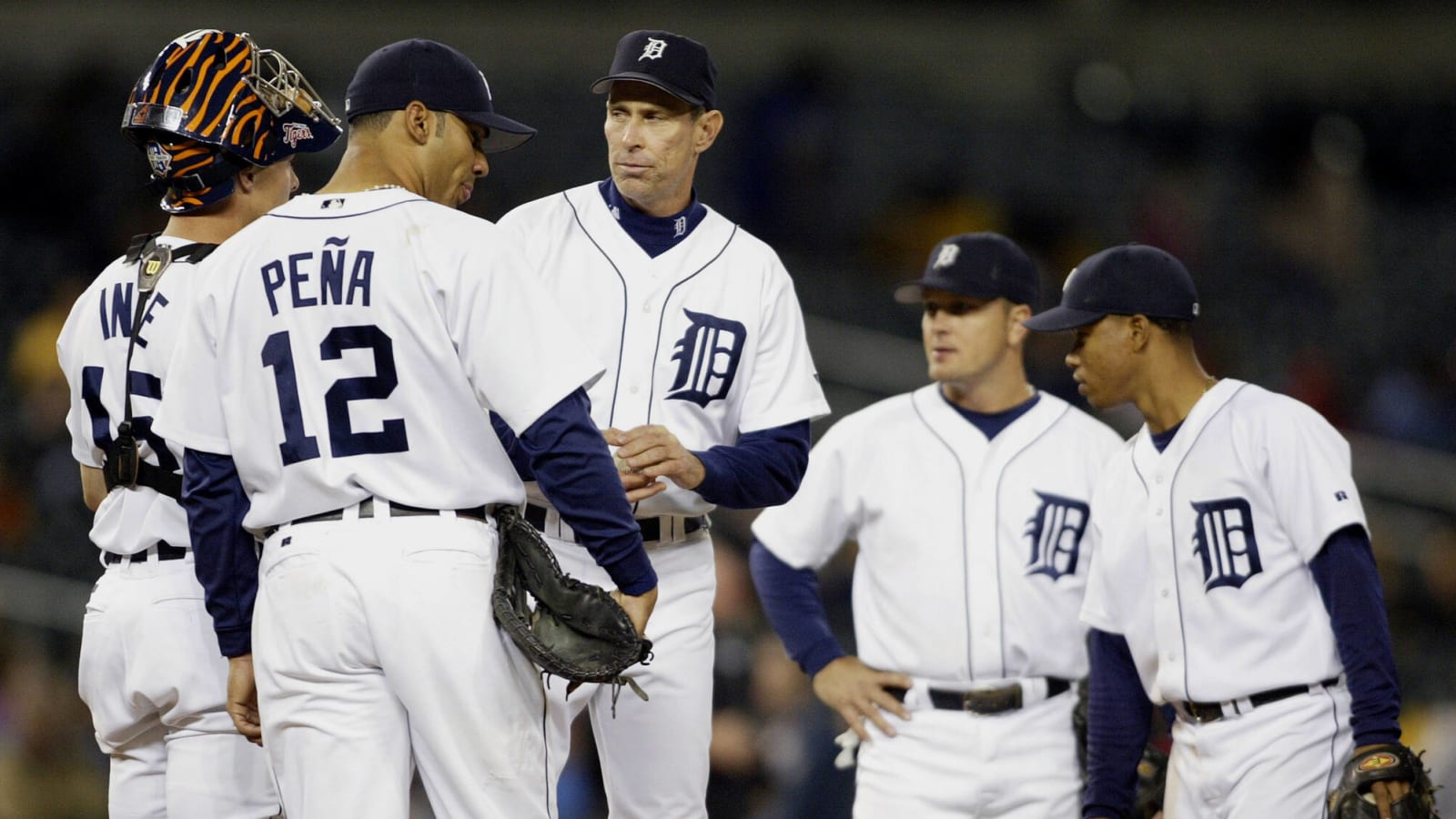
The worst MLB teams from the 2000s
The analytics revolution started in MLB during the 2000s while more fire sales started to take shape, and some horrific teams were left in its wake. These 20 teams were the worst of the decade.
1. 2003 Detroit Tigers
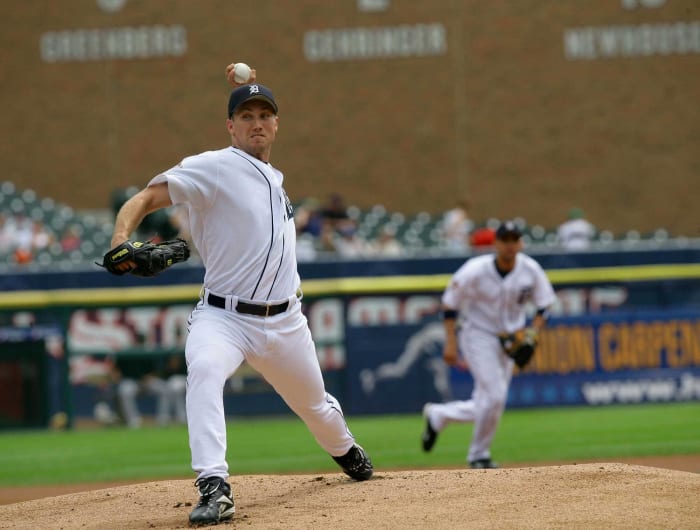
The 2003 Tigers were truly one of the worst teams in MLB, with a .265 winning percentage that just beat out the 1962 New York Mets after finishing 43-119. The season was part of a rebuild from GM Dave Dombrowski that would bear fruit a few years later, but the team failed to generate offense beyond DH Dmitri Young and had three starters lose at least 17 games, including 21-loss starter Mike Maroth.
2. 2004 Arizona Diamondbacks
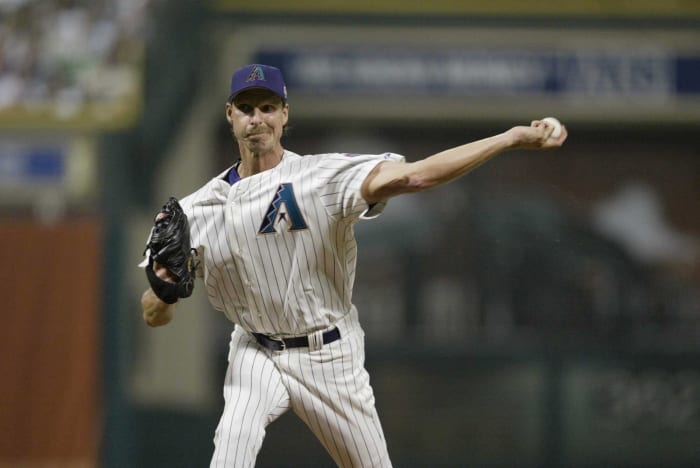
Three years after winning the World Series, Arizona saw an epic collapse with the worst offense in baseball and 111 losses. Star left fielder Luis Gonzalez missed significant time to injury, while center fielder Steve Finley was traded at the deadline. Despite the team's poor performance, ace Randy Johnson finished second in NL Cy Young voting after going 16-14 with a 2.60 ERA and 290 strikeouts in 245.2 innings.
3. 2002 Detroit Tigers

Remarkably, Detroit's 106-loss season in 2002 wasn't nearly their worst of the decade, but this squad was arguably less watchable than the 119-loss rendition. The Tigers finished last in MLB with only 575 runs scored, and Bobby Higginson was the only regular with an on-base percentage above .340. The team also traded ace Jeff Weaver at midseason.
4. 2002 Tampa Bay Devil Rays
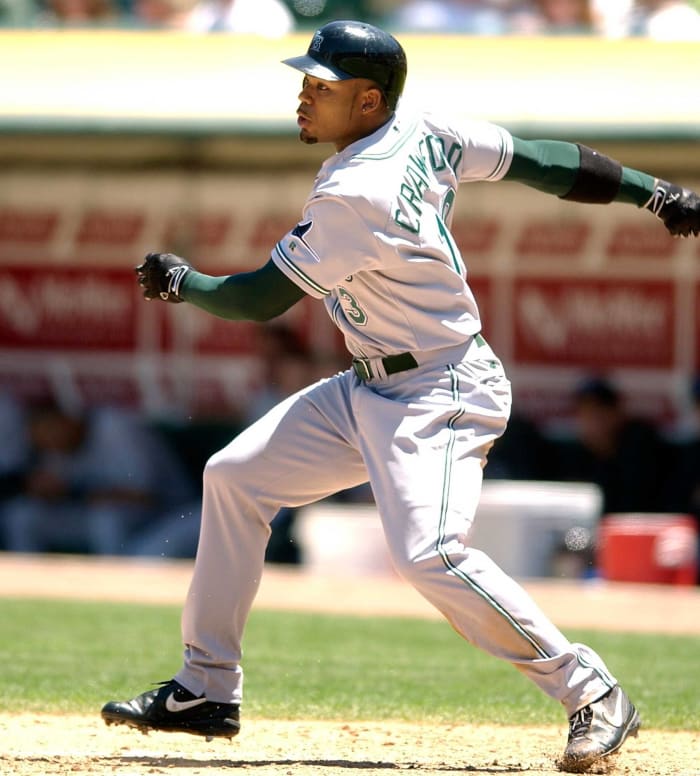
Tampa Bay lost at least 90 games in each of their first 10 seasons, but the 2002 squad was their worst with 106 losses. The team allowed a league-high 918 runs, punctuated by Tanyon Sturtze finishing the season 4-18 with a 5.18 ERA over 33 starts. The lineup did have a major positive, with the arrival of top prospect Carl Crawford in left field.
5. 2005 Kansas City Royals

The Royals lost 100-plus games four times between 2002-2006, with their 106-loss campaign in 2005 being their worst. Kansas City struggled to hit for power, launching only 126 home runs, and the pitching was just behind Tampa Bay as the second-worst in baseball. DH Mike Sweeney was the team's only 20-HR hitter, and Zack Greinke struggled in his first full season after a strong rookie showing in 2004.
6. 2002 Milwaukee Brewers

Milwaukee had too many holes in a lineup that scored the second-fewest runs in MLB (627), with very little run production beyond Richie Sexson and Jose Hernandez. The result was 106 losses, with ace Ben Sheets (4.15 ERA in 216.2 innings) one of their only bright spots.
7. 2004 Kansas City Royals
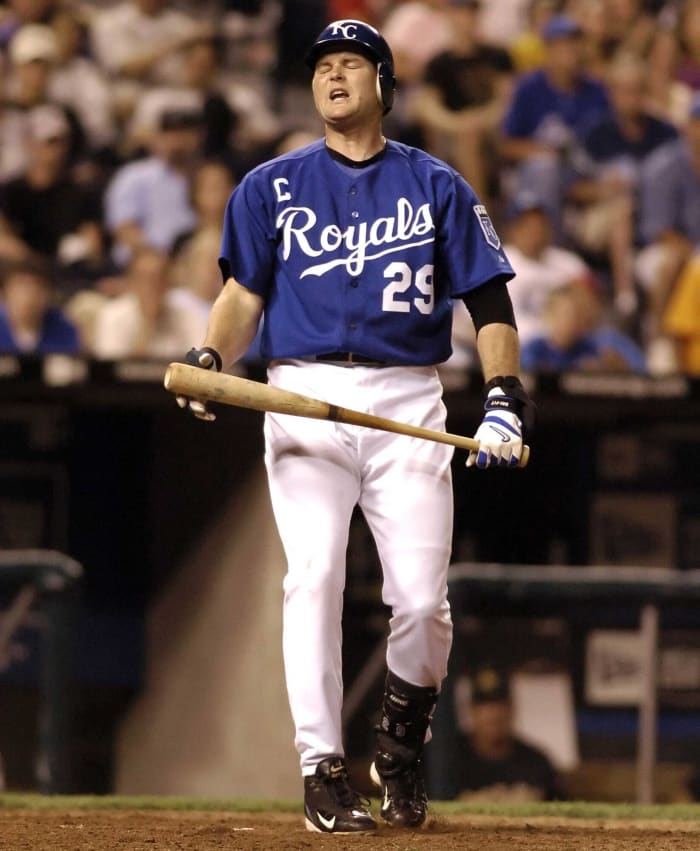
Kansas City lost over 100 games for the second time in three years, finishing last in the AL Central with 104 losses in 2004. The team's 905 runs allowed was third-worst in MLB, with little quality pitching beyond rookie Zack Greinke. DH Mike Sweeney was the only regular member of the lineup with at least 20 home runs or an .800-plus OPS.
8. 2009 Washington Nationals

The Nats lost more than 100 games for the second consecutive season, with the worst pitching in the NL allowing 874 runs en route to 103 losses. The lineup provided very little help for middle-of-the-order hitters Ryan Zimmerman and Josh Willingham, while John Lannan was the team's only regular starting pitcher with a sub-4.00 ERA.
9. 2008 Washington Nationals
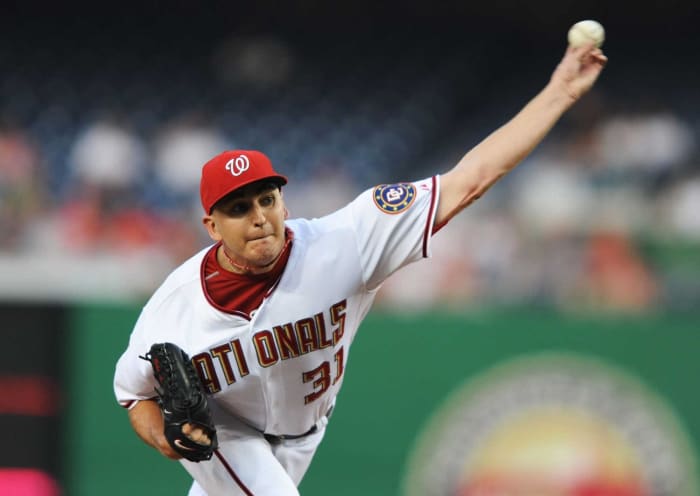
The young Nationals failed to produce a 15-home run hitter in 2008, and the pitching wasn't much better in a 102-loss season. John Lannan was the team's best pitcher, going 9-15 but posting a strong 3.91 ERA in 31 starts.
10. 2008 Seattle Mariners

The Mariners were elite early in the 2000's, but started a major slide late in the decade. The roster had plenty of talent in 2008, including Ichiro Suzuki, Adrian Beltre, Raul Ibanez, and Felix Hernandez, but lost 101 games with terrible seasons from the likes of Richie Sexson, Jose Vidro, and Carlos Silva.
11. 2006 Tampa Bay Devil Rays

Tampa Bay reached 100 losses for the third time in franchise history, losing 101 in Joe Maddon's first year as manager. The team's youth movement was taking shape with young players like Carl Crawford, B.J. Upton, Delmon Young, Rocco Baldelli, Jonny Gomes, Scott Kazmir, and James Shields, but the team finished last in MLB with only 689 runs scored.
12. 2006 Kansas City Royals
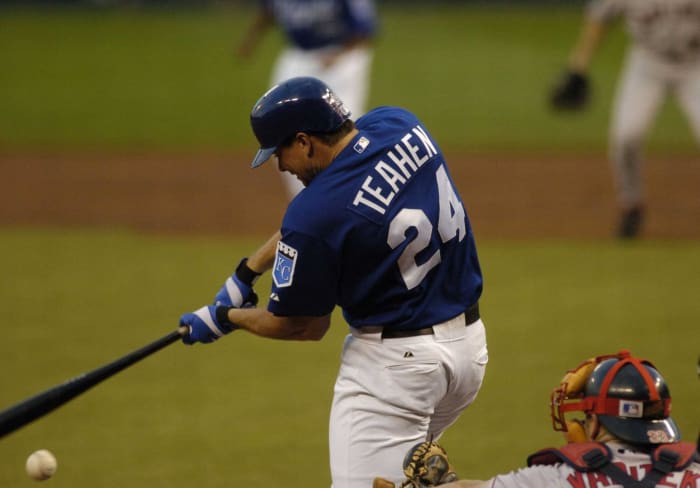
The Royals had their third consecutive 100-loss season and fourth in five years, losing exactly 100 games in 2006. The team's offense showed some improvement with a breakout season from third baseman Mark Teahen, but the pitching was the worst in baseball with 971 runs allowed.
13. 2002 Kansas City Royals

KC had their first 100-loss season in franchise history in 2002, with a team that struggled to find pitching for most of the year beyond ace Paul Byrd. The lineup did see excellent campaigns from Carlos Beltran, Raul Ibanez, and Mike Sweeney.
14. 2001 Pittsburgh Pirates
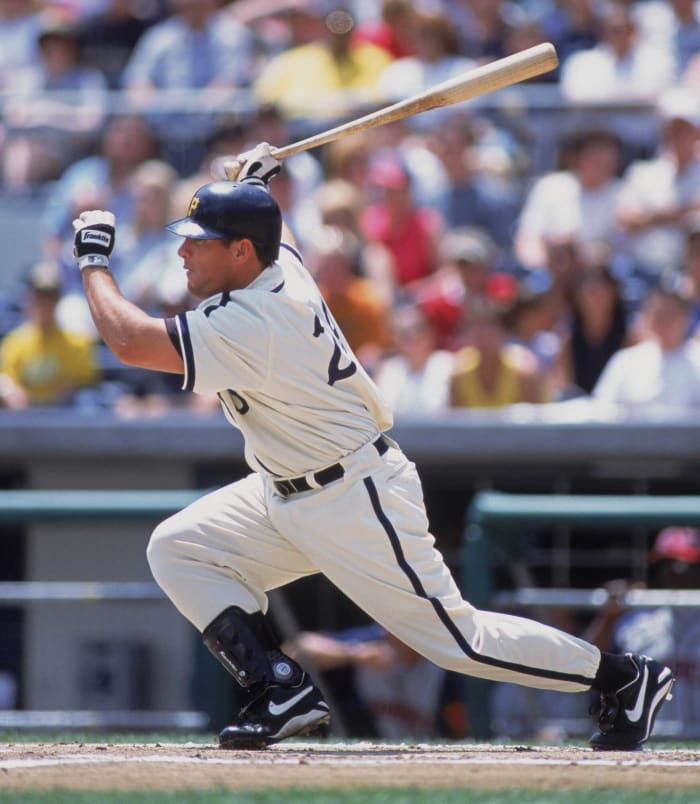
A very thin lineup doomed the Pirates in 2001, who lost 100 games and scored only 657 in spite of 30-plus home run seasons from Brian Giles and Aramis Ramirez. Pittsburgh had disappointing production from catcher Jason Kendall and first baseman Kevin Young, while both 200-inning starting pitchers (Todd Ritchie and Jimmy Anderson) posted ERAs well above 4.00.
15. 2001 Tampa Bay Devil Rays

The Devil Rays franchise was going in the wrong direction, with their first 100-loss season in their fourth year of existence. Manager Larry Rothschild was fired after a 4-10 start to the season in favor of Hal McRae, and the team shipped face of the franchise Fred McGriff to the Cubs at midseason. Greg Vaughn was the only player to reach 20 home runs with the team, while four different starting pitchers reached 12 losses.
16. 2009 Pittsburgh Pirates
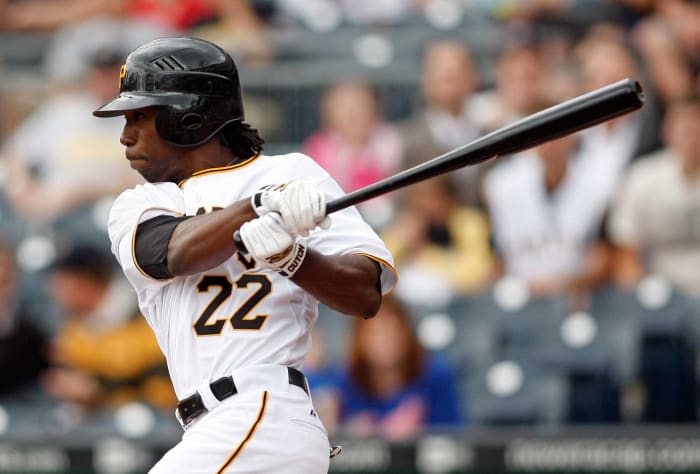
Pittsburgh capped off an entire decade without finishing .500 in 2009, losing 99 games. The season did mark the arrival of soon-to-be franchise player Andrew McCutchen, who finished fourth in the Rookie of the Year race, but had a much longer way to go in their rebuild. Ace Zach Duke lost 16 games despite a 4.06 ERA in 32 starts.
17. 2008 San Diego Padres

The Padres lost 99 games under Bud Black in 2008 in spite of big bats like Adrian Gonzalez, Brian Giles, and Jody Gerut, with a lineup that was otherwise thin and aging to score only 637 runs. Reigning NL Cy Young winner Jake Peavy did post a 2.85 ERA in 27 starts, and the pitching staff also had future Hall of Famers Greg Maddux and Trevor Hoffman.
18. 2004 Seattle Mariners

Seattle's run of four consecutive seasons with more than 90 wins ended in 2004, as the team finished 63-99. The lineup got old quickly, as every regular was now 30-plus, led by Ichiro Suzuki, Edgar Martinez, Bret Boone, and John Olerud. The pitching also had its fair share of issues, with the 41-year-old Jamie Moyer posting a 5.21 ERA as the No. 1 starter.
19. 2003 Tampa Bay Devil Rays
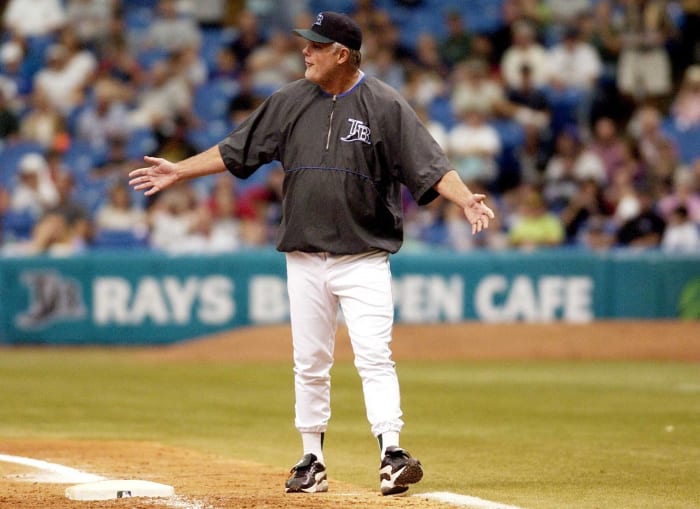
The hiring of manager Lou Piniella had little impact on the lowly Devil Rays, who went 63-99 after reaching 100 losses in the previous two seasons. Top outfield prospects Carl Crawford and Rocco Baldelli did makes significant impacts at age 21, and Aubrey Huff had a breakout season hitting .311-34-107.
20. 2001 Baltimore Orioles
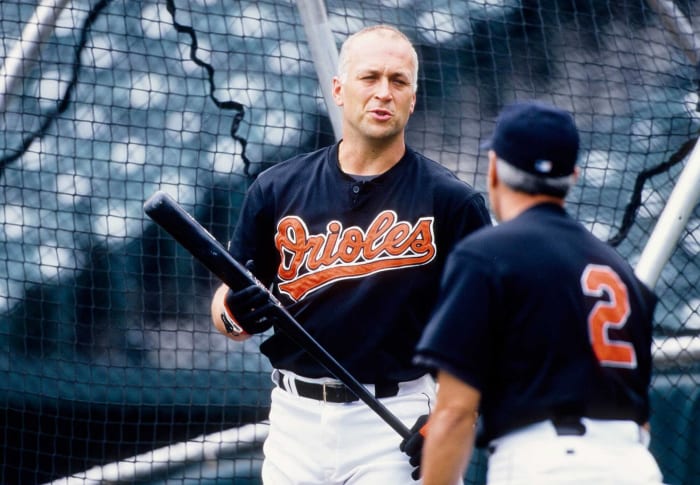
The 2001 season is remembered far more by Orioles fans for Cal Ripken Jr.'s swan song than the success on the field. Ripken called it quits after his 19th All-Star appearance, but the team lost 98 games and finished out of the playoffs for the fourth consecutive year.
Seth Trachtman is a fantasy sports expert and diehard Kansas City Chiefs fan. He doesn't often Tweet, but when he does, you can find him on Twitter @sethroto.
More must-reads:
- Astros GM makes revealing comments about team's trade-deadline strategy amid poor start
- Giants designate right-hander for assignment
- The 'MLB Rookies of the Year' quiz
Breaking News
Customize Your Newsletter
 +
+
Get the latest news and rumors, customized to your favorite sports and teams. Emailed daily. Always free!
Use of this website (including any and all parts and
components) constitutes your acceptance of these
Terms of Service and Privacy Policy.

